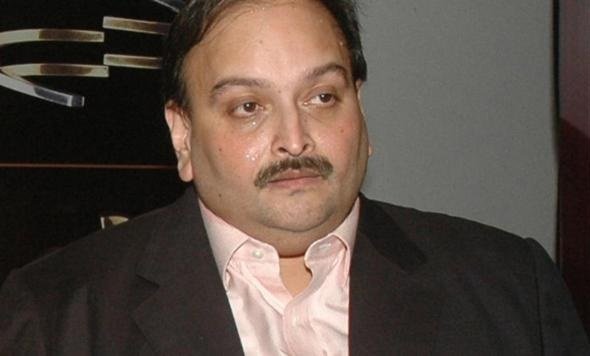The PNB scam exposed vulnerabilities in corporate and banking systems, revealing how unchecked ambition and lax oversight can lead to catastrophic consequences.
Mehul Choksi’s arrest in Belgium is a wake-up call for corporate governance, urging CEOs and directors to strengthen oversight. The Rs. 13,850 crore Punjab National Bank scam, fueled by fraud and collusion, exposed critical flaws in corporate and banking systems.
NEW DELHI (India CSR): On April 12, 2025, the long arm of justice finally caught up with Mehul Choksi, the fugitive Indian businessman accused of orchestrating one of India’s largest banking frauds. Arrested in Belgium after years of evading authorities, Choksi’s detention marks a pivotal moment in the Rs. 13,850 crore Punjab National Bank (PNB) scam saga. For CEOs and directors navigating the complexities of corporate governance, this high-profile case serves as a stark reminder of the consequences of financial misconduct and the importance of robust oversight. From falsified documents to international extradition battles, here are seven critical facts every business leader must know about Choksi’s arrest and its implications.
On Mehul Choksi’s detention in Belgium, his lawyer Vijay Aggarwal defended him, saying, “My client was taken into custody on Saturday, at the moment, he is in prison, the procedure is not to apply for bail, the procedure is to apply for file and appeal, during that appeal, the request is made, that he should not be kept in detention, he should be permitted to defend himself, oppose the extradition request, while not being in the custody.”
He further added, “These are the obvious grounds that he is not a flight risk, he is extremely sick, he is undergoing the treatment of cancer, when he was picked up from Antigua to be taken to Dominica by the Indian agencies, that time because of the torture, he is feeling claustrophobic, he has got permanent deformities, he is also facing Post Traumatic Stress Disorder (PTSD). The case has become very strong. We will de defending on two grounds- first it is a political case, secondly because of the human condition in India (condition of prisons in India).”
Fact 1: The PNB Scam – A Colossal Breach of Trust
Anatomy of India’s Biggest Banking Fraud
Mehul Choksi, alongside his nephew Nirav Modi, is accused of defrauding Punjab National Bank of Rs. 13,850 crore between 2014 and 2017. The scam involved fraudulent Letters of Undertaking (LoUs) and Foreign Letters of Credit (FLCs), issued without proper collateral or documentation. These instruments allowed Choksi’s Gitanjali Group and Modi’s companies to secure overseas credit, which was then siphoned off, leaving PNB with massive losses. For CEOs, this underscores the necessity of stringent internal controls to prevent collusion between corporate entities and bank officials. The absence of checks enabled the scam to go undetected for years, highlighting the risks of unchecked financial operations.
Lesson for Leaders: Implement rigorous auditing processes and ensure transparency in financial dealings to safeguard against fraudulent practices.
###
Fact 2: Mehul Choksi’s Global Escape – A Tale of Citizenship and Deception
From Mumbai to Antigua to Belgium
Mehul Choksi fled India in January 2018, just before the PNB scam came to light. He secured Antiguan citizenship in 2017 through a Citizenship by Investment program, a move that complicated India’s extradition efforts. In 2021, he was detained in Dominica for illegal entry, sparking allegations of kidnapping, which he claimed was orchestrated by Indian agents. After returning to Antigua, Choksi resurfaced in Belgium in 2023, reportedly obtaining an ‘F Residency Card’ through falsified documents. His wife, Preeti Choksi, a Belgian citizen, facilitated his stay in Antwerp. For directors, this illustrates the challenges of tracking cross-border financial crimes and the importance of due diligence in verifying stakeholder backgrounds.
Lesson for Leaders: Strengthen compliance frameworks to monitor international transactions and affiliations, preventing executives from exploiting jurisdictional loopholes.
###
Fact 3: Belgium Arrest – A Triumph for Indian Agencies
Subheading: CBI and ED’s Relentless Pursuit Pays Off
Choksi’s arrest in Belgium on April 12, 2025, was the result of persistent efforts by India’s Central Bureau of Investigation (CBI) and Enforcement Directorate (ED). After Interpol withdrew its Red Notice against Choksi in 2023, Indian agencies intensified their extradition push, sharing non-bailable warrants issued by Mumbai courts in 2018 and 2021 with Belgian authorities. Choksi was detained in a hospital where he was undergoing treatment, reportedly for blood cancer. This breakthrough demonstrates the power of international cooperation in tackling economic offenses. For CEOs, it emphasizes the importance of collaborating with regulatory bodies to maintain corporate integrity.
Lesson for Leaders: Foster open communication with law enforcement and regulatory agencies to ensure swift action against financial irregularities.
###
Fact 4: Legal Battle Looms – Health and Politics as Defense
Choksi’s Fight Against Extradition
Choksi’s legal team, led by Vijay Aggarwal, is preparing to contest his extradition to India. They plan to argue that Choksi is not a flight risk, citing his health issues, including cancer treatment and alleged PTSD from his 2021 Dominica ordeal. Additionally, they claim the case is politically motivated and that Indian prison conditions are substandard. The India-Belgium extradition treaty of 2020 allows for the transfer of fugitives accused of serious crimes like fraud, but Choksi’s Antiguan citizenship and health concerns may complicate proceedings. For directors, this highlights the need to anticipate legal challenges in cross-border disputes and prepare for prolonged battles.
Lesson for Leaders: Maintain comprehensive legal strategies to address potential disputes, especially in cases involving international jurisdictions.
###
Fact 5: Asset Seizures – Recovering the Loot
ED’s Crackdown on Choksi’s Empire
Since 2018, the ED has seized assets worth over Rs. 2,565 crore linked to Choksi and his Gitanjali Group. These include jewelry, properties, vehicles, shares, and overseas holdings. In December 2024, a Mumbai court authorized the monetization of properties valued at Rs. 2,565.9 crore, with assets like Mumbai flats and factories transferred to PNB and ICICI Bank. This aggressive recovery effort reflects the government’s commitment to restituting losses from economic offenders. For CEOs, it serves as a warning that ill-gotten gains are not beyond reach, reinforcing the need for ethical financial management.
Lesson for Leaders: Ensure all corporate assets are acquired transparently and documented thoroughly to avoid scrutiny during investigations.
###
Fact 6: Corporate Fallout – The Collapse of Gitanjali Group
A Jewelry Empire in Ruins
Once a titan in India’s jewelry industry with over 4,000 stores, Choksi’s Gitanjali Group crumbled after the scam’s exposure in 2018. The fraud not only bankrupted the company but also eroded trust in the sector. Investigations revealed that Choksi’s son, Rohan, played a significant role in managing international operations, including fraudulent activities at Samuels Jewelers in the U.S., which misrepresented lab-grown diamonds as natural. For directors, this collapse illustrates the ripple effects of executive misconduct on employees, shareholders, and industry reputation.
Lesson for Leaders: Prioritize corporate social responsibility and ethical leadership to protect brand legacy and stakeholder trust.
###
Fact 7: Whistleblower’s Warning – A Call for Vigilance
Hariprasad SV’s Role in Exposing the Scam
Hariprasad SV, the PNB scam whistleblower, first raised concerns in 2016, alerting the Prime Minister’s Office to suspicious balance sheet entries. His persistence helped uncover the fraud, but he cautions that Choksi’s wealth and access to elite European lawyers may prolong the extradition process. Hariprasad’s remarks highlight the challenges of prosecuting high-profile offenders. For CEOs and directors, this underscores the importance of fostering a culture where whistleblowers feel safe to report irregularities without fear of retaliation.
Lesson for Leaders: Establish robust whistleblower protection policies and encourage a culture of accountability to detect and address misconduct early.
Key Developments in Mehul Choksi’s Arrest and PNB Scam Case
- Whistleblower’s Skepticism: Hariprasad SV, the PNB scam whistleblower, doubts Mehul Choksi’s swift return to India, citing his vast financial resources and access to elite European legal support.
- Arrest Warrants: Mehul Choksi’s arrest in Belgium on April 12, 2025, stems from two non-bailable warrants issued by a Mumbai court in 2018 and 2021, shared with Belgian authorities for extradition.
- Interpol Complication: The extradition process faces challenges as Interpol previously withdrew its Red Notice against Mehul Choksi, forcing India to rely on bilateral extradition efforts.
- PNB Scam Charges: In 2018, the CBI and ED charged Mehul Choksi, Nirav Modi, their companies, family members, and bank officials for defrauding PNB’s Brady House branch in Mumbai of Rs. 13,850 crore.
- Industry Reaction: Santosh Srivastava, former Managing Director of Choksi’s Gitanjali Gems, hailed the arrest, expressing hope for justice in the massive fraud case.
(India CSR)
Read it in Hindi
पीएनबी घोटाला: मेहुल चोकसी की गिरफ्तारी से कॉर्पोरेट गवर्नेंस को मिला एक चेतावनी संदेश – India CSR





















